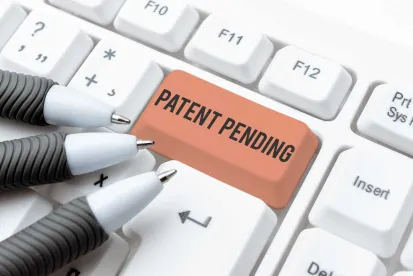On October 4, 2022, in a 52-page Director review decision in an inter partes review (IPR) proceeding involving recently-formed entity OpenSky Industries LLC, USPTO Director Katherine Vidal sanctioned OpenSky “to the fullest extent of [her] power” because of OpenSky’s abuse of the IPR process, including flaunting of the Director’s discovery orders. The Director applied negative inferences to find facts against OpenSky; demoted OpenSky to a subordinate role in the IPR; and ordered OpenSky to show cause why OpenSky should not be required to pay compensatory damages.
These actions, plus subsequent pronouncements in the past couple of weeks, signal the Director’s commitment to addressing allegations about systemic IPR abuse. Patent owners and patent challengers can expect more as the Director considers overhauling the Director review procedure, as well as the Patent Trial and Appeal Board’s (PTAB) processes for determining whether an IPR proceeding should go forward.
OpenSky’s Questionable Origins
As the Director discussed in her Decision, OpenSky was formed in April 2021, about seven weeks after a jury awarded $2.2 billion in damages to VLSI Technology LLC against Intel Corporation. OpenSky filed its IPR petition six weeks after the company’s formation. The short time period between the verdict and the formation, and then the filing, raised questions about the reasons for OpenSky’s formation – reasons which OpenSky declined to answer, despite an order from the Director to do so. There also was evidence that OpenSky was trying to use the IPR proceeding as a vehicle to profit from VLSI’s trial win, by getting compensation from either VLSI or Intel.
OpenSky’s petition was largely a copy of Intel’s earlier petition, as to which the PTAB denied institution of an IPR based on the prospective timing of trial in a parallel proceeding in the Western District of Texas (relying on timing in particular as one of the “Fintiv” factors in an analysis under Apple, Inc. v. Fintiv, Inc.). In addition to basically copying Intel’s petition, OpenSky also refiled Intel’s expert declaration without informing the expert, and without securing the expert’s availability to testify in deposition.
OpenSky initiated settlement negotiations with VLSI, seeking payments in return for getting the IPR petition dismissed. OpenSky offered to sabotage the petition by refusing to produce its expert for deposition, leaving as evidence only the expert’s declaration, which was hearsay and therefore inadmissible, thereby dooming the case. OpenSky also approached Intel after the institution of the IPR to solicit compensation for moving the IPR forward and for success in the proceeding. After the Board granted Intel’s motion for joinder to the proceeding, OpenSky continued to seek reimbursement from Intel for expenses incurred in the filing and continued prosecution of the petition.
The Director found that OpenSky manifested a lack of interest in meaningfully pursuing the merits of its patentability challenge. OpenSky filed a reply that Intel drafted entirely, and used Intel’s deposition outline. OpenSky did not request oral argument and failed to meaningfully participate in oral argument.
Sanctions Against OpenSky
Importantly, as noted above, OpenSky failed to respond substantively to Director Vidal’s discovery order that set forth litigation-type interrogatories and document requests regarding OpenSky’s formation and business plan, identification of the real-party-in-interest in the IPR, and the purposes behind OpenSky’s Petition. OpenSky’s evasiveness and non-responsiveness signaled bad faith, and prompted the Director to apply adverse inferences and to find the following facts against OpenSky:
-
OpenSky did not have a legitimate belief that it might be sued for patent infringement;
-
The express and sole purpose of OpenSky’s IPR Petition was for the improper purpose of extracting money extract payment from Intel and/or VLSI; and
-
OpenSky filed its petition with the lowest possible cost to generate leverage against VLSI, but without the intent or expectation of litigating the proceeding through trial.
The Director concludes that OpenSky was guilty of abusing the IPR process, the patent system, and the USPTO. In addition to finding facts adverse to OpenSky, the Director demoted OpenSky to a silent observer role, and elevated Intel to lead the remainder of the proceeding.
The Director also ordered OpenSky to show cause why it should not be ordered to pay expenses, including attorney fees, to VLSI as a further sanction for abuse of process.
Is There More to Come Here?
The Director did not dismiss the IPR proceeding, but did state that, in addition to possible monetary sanctions, it would be necessary to decide whether to maintain or dismiss the underlying proceeding. The Director remanded to the Board to determine whether the Petition would have been granted under a heightened standard of “compelling merits “of unpatentability. Earlier this year, the Director articulated the “compelling merits” standard in a June 2022 Memorandum amending the Fintiv factors to decrease the amount of discretion the Board has in denying IPR petitions. Under the “compelling merits” standard, the Board will institute an IPR proceeding where “the evidence, if unrebutted in trial, would plainly lead to a conclusion that one or more claims are unpatentable by a preponderance of the evidence”.
VLSI objected to the Director’s Decision, saying that the Decision left VLSI worse off than before, primarily because the Director did not simply terminate the proceeding.
Before the Director ruled on VLSI’s objections, the Board issued its decision on remand, maintaining its prior institution decision under the “compelling merits” standard,. The Director then issued an order for sua sponte Director review of the Board’s “compelling merits” decision. While acknowledging “the significant investment in the district court case,” the Director also stated, “I am aware of no compelling public policy that would suggest that the USPTO should look the other way when presented with highly questionable patents the AIA was meant to address.” The Director felt “duty-bound to conduct an independent Director review of the compelling merits determination” to “safeguard that this proceeding advances only if necessary to preserve the integrity of the patent system”.
OpenSky’s IPR counsel filed a request to withdraw from representation of OpenSky, and asked for a 30 day extension on behalf of OpenSky to respond to the Director’s order to show cause. While IPR counsel directed the withdrawal request to the Board, the Director issued an order granting the request, based on apparent divergence between OpenSky’s interests and that of its IPR counsel in view of the Director’s finding of OpenSky’s abuse of process. The Director also granted the requested 30-day extension.
Takeaways
More recently, the Director has commented about a need to revisit the current joinder rules. She may feel that Intel properly was joined to an instituted proceeding under the current rules. As a result, she may feel that her ability to simply dismiss or terminate the proceeding is limited, which is why she has not yet done so, though there are calls for her to do so in view of OpenSky’s misfeasance. If she were to dismiss the proceeding, Intel would no longer be a joined party, and presumably Intel’s further patent challenge then would end. Her recent order initiating Director review of the PTAB’s finding of compelling merit in the OpenSky petition would appear to signal a desire to dismiss the proceeding, but the Director is proceeding cautiously.
The Director’s involvement in the OpenSky proceeding reflects several of a series of actions the Director has initiated very quickly since her taking office in April 2022. The Director’s interim procedure as set forth in the June 2022 Memorandum could well have permitted Intel’s original PTAB challenge to go forward, based on a “compelling merits” requirement, or on the actual time to trial in district court rather than on judge-set trial dates, which so often are pushed back significantly. The interim procedure amends the so-called Fintiv factors in a way that seemingly favors patent challengers. Revisiting the current joinder rules may restore some of the balance in favor of patent owners.
It is possible that the Director will take the opportunity to overrule the PTAB’s finding of “compelling merits” in the OpenSky petition, and dismiss the petition, a decision which could limit challenges by speculative petitioners and therefore bode well for patent owners.
The Director has requested comments on Director Review, Precedential Opinion Panel Review, and Internal Circulation and Review of Patent Trial and Appeal Board Decisions. The extended period for comments ended October 19.
Given the Director’s activity and proactiveness to date, we can anticipate significant changes to IPR procedures. Stay tuned.





 />i
/>i
